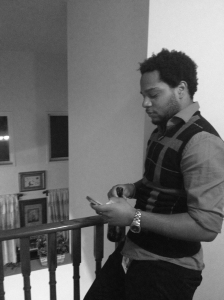
This is the fourth of fifteen articles in CDLS’ Spotlight On… series, exploring culture and society around the world.
Day 1: Cyprus
Day 2: North Korea
Day 3: India
[Caution: very long article ahead]
Let’s move away from Asia for a bit and shift our focus to somewhere closer to home. This is something that CJ actually asked me to write back when Hugo Chavez passed away. I keep quite up to date with current affairs back in Venezuela and he wanted to know what direction I felt the nation would head in and how I felt about Chavez myself.
A nation known as much for its number of Miss Universe finalists, as well as for its oil reserves and its recently deceased, polarizing president, Venezuela is a country of mixed opinions. Ask anybody about Venezuela and they will speak to its high crime rate and the dangerous streets of Caracas. Or they will speak to its lush landscapes and the beauty of Angel Falls. Or they would speak about Chavez and how he ruled the nation with an iron fist and was destroying the Venezuelan economy. Or maybe they would even say he was a hero in South America and an inspiration in Venezuela. You get the idea.
I’m going to give a quick history lesson here, so bear with me. Quite a few people erroneously believe Chavez took power in a coup d’état and set himself up as a dictator. While he did attempt to overthrow then-President Carlos Andrés Perez in 1992 which he was subsequently imprisoned for, Chavez was actually elected President in a free election in 1998. Chavez was known for his strong anti-American and anti-imperialist sentiment. A staunch dissenter of capitalism, he espoused a form of Socialism known as the Bolivarian Revolution, based in part on Simon Bolivar’s philosophies and beliefs. He instituted a new constitution, took back several key industries and brought them under government control, and made aggressive steps towards social reform.
Popular opinion was as divided on Chavez as it was on Venezuela. If you only ever paid attention to Western media, and especially the American press, you would come across the opinion that Chavez was equal parts mad tyrant and global nuisance. If you looked elsewhere you would hear a different story of a national hero who was a friend to the poor and brought Venezuela to more prominence on the global stage. Even back in Venezuela, opinion is still fiercely divided on Chavez.
If you know me personally, which you most likely don’t, you would know that I have always been a fan of Hugo Chavez. While I admit he strongly overvalued the bolivar and sided with several controversial global figures, I believe what he brought to Venezuela strongly outweighs the negatives. Under his watch, income inequality, measured using the Gini coefficient (not explaining it here; click the Wikipedia link for that), dropped from .5 in 1998 to .39 in 2011, which put Venezuela second to Canada in the Western Hemisphere. For all those who criticised Chavez for being responsible for the high poverty, during his presidency he brought the poverty rate down from 55.44% in 1998, before he took office, to 28% in 2008. Chavez increased government spending in healthcare and education, in his bid to make significant achievements in addressing illiteracy, healthcare and poverty.
He was incredibly popular with the lower classes as they were the ones who benefitted most from his initiatives and policies. Although known to be an enemy of capitalism, Nicholas Kozloff described Chavez and his agenda best when he said that: “Chavez has not overturned capitalism, he has done much to challenge the more extreme, neo-liberal model of development.” Chavez shifted Venezuelan foreign policy to focus more on Latin American economic and social integration and pushed forward several initiatives to bring about a more integrated Latin America.
One of his main failings was limiting of the freedom of the press, which was well-documented by the media. My view on that however is this: Venezuela is and was a country still dealing with a high poverty level and still trying to bring down their food shortages. Until the people are properly fed and poverty level drops, who really gives a shit about freedom of the press? The freedom of the press is a luxury that you can think about when you aren’t starving and living in one of the many barrios found in Caracas. I wouldn’t stand for it here in Canada because we aren’t dealing with extreme poverty, food shortages or still in the process of educating our populace. Because these aren’t significant current issue, freedom of the press is a concept that we do have time to look at and establish. However if I’m living in a country where a large chunk of the population is poor and I can barely feed my family, freedom of the press falls quite low on my list of priorities. Its all about context
And truthfully, I question whether there is any nation whose press/media is truly free and doesn’t merely report what suits the agendas of a single group or person. If you’re genuinely focused on helping the poor and actually trying to feed the people, I’ll give a little leeway on the media bit. And for me the numbers do show that Chavez did a lot more for Venezuela and its people than people would like to admit.
But that’s just my opinion. I wasn’t born there. I was born and raised here, so everything I say is based on looking at it from the outside and what I have seen when I have been there. My uncle however, was born and raised there, and he paints a different picture of Venezuela under Chavez.
He tells a story of a city whose streets are so dangerous that you should never walk the streets alone. Where there are certain are that you would not want to enter for any reason. Where any dissent against the administration, would lead to politically motivated arrests, fines and being targeted by fierce Chavez supporters. He speaks of a nation that has increasingly been influenced from overseas and how the government is being directed and manipulated by the Castros and Cuba.
He speaks of a Venezuela he’s lived and breathed in. I speak of a Venezuela that I have seen and read about.
So with all these opinions, anecdotes and thoughts out there, who is right?
Well, I am. And so is he. And so is every single one of the opinions on Chavez and Venezuela. People always say ‘truth is relative’ but the leave off the last bit: truth is relative based on context and perception.
There are many different ways to look at an issue and there are many different angles to view the issue from as well. None are more correct than the other, because they all focus on a different aspect of the problem. I look at Venezuela and Chavez on a more analytical and statistical level. My uncle looks at it from a more personal level. We just see things differently.
But isn’t that true with all of us in the world? We all have a different set of viewpoints and experiences that shape how we perceive the world. You will never find somebody who perceives the world the way you do because nobody else has lived your life. Looking at life in terms of black and white and expecting people to agree with us completely has led to countless problems throughout the world.
We need to start acknowledging the validity of alternate perspectives and understanding the context these viewpoints are made from.
Next Stop: Israel









Trackbacks/Pingbacks
[…] Next: Venezuela […]